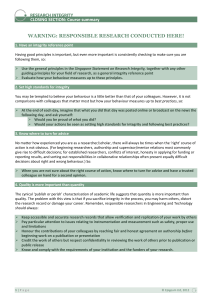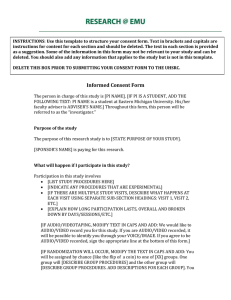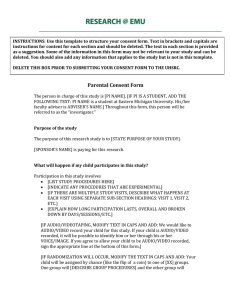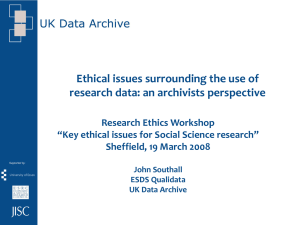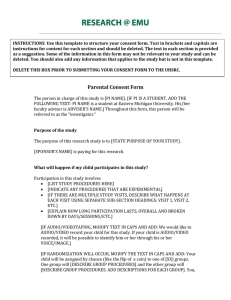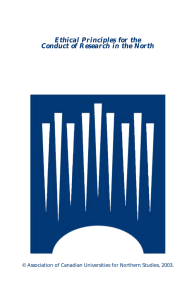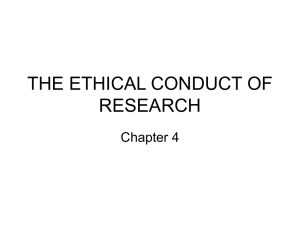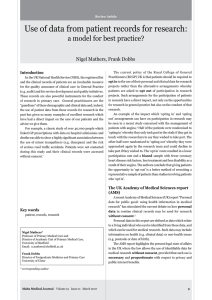WHAT TYPES OF RESEARCH REQUIRE ETHICAL APPROVAL? and require ethical approval:
advertisement
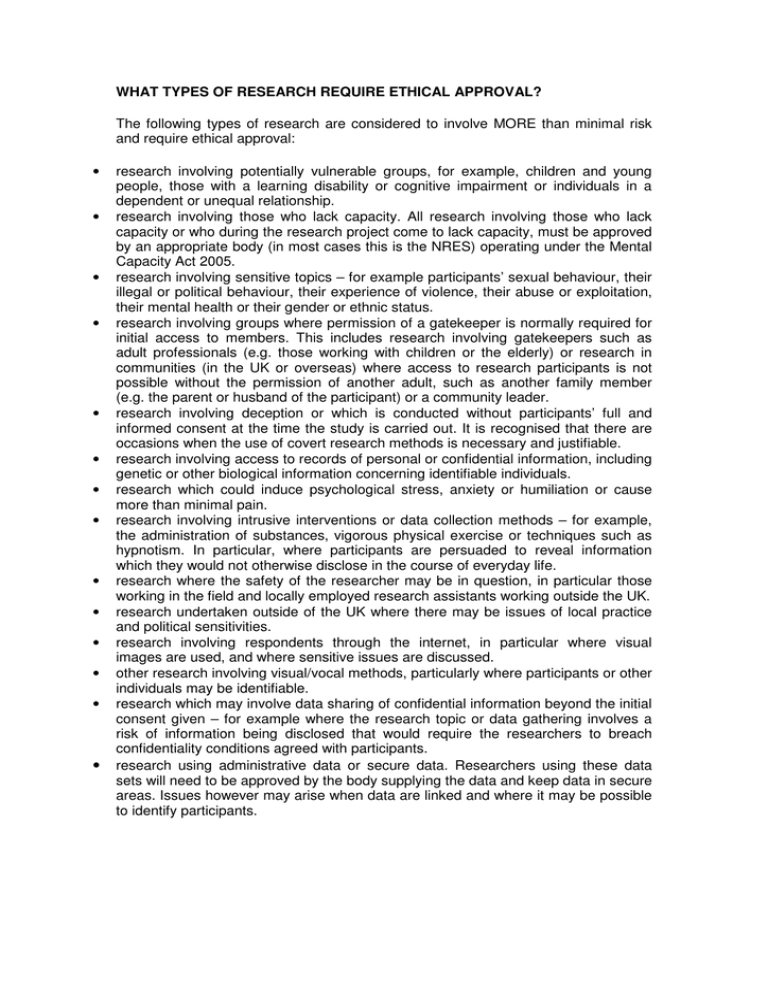
WHAT TYPES OF RESEARCH REQUIRE ETHICAL APPROVAL? The following types of research are considered to involve MORE than minimal risk and require ethical approval: • • • • • • • • • • • • • • research involving potentially vulnerable groups, for example, children and young people, those with a learning disability or cognitive impairment or individuals in a dependent or unequal relationship. research involving those who lack capacity. All research involving those who lack capacity or who during the research project come to lack capacity, must be approved by an appropriate body (in most cases this is the NRES) operating under the Mental Capacity Act 2005. research involving sensitive topics – for example participants’ sexual behaviour, their illegal or political behaviour, their experience of violence, their abuse or exploitation, their mental health or their gender or ethnic status. research involving groups where permission of a gatekeeper is normally required for initial access to members. This includes research involving gatekeepers such as adult professionals (e.g. those working with children or the elderly) or research in communities (in the UK or overseas) where access to research participants is not possible without the permission of another adult, such as another family member (e.g. the parent or husband of the participant) or a community leader. research involving deception or which is conducted without participants’ full and informed consent at the time the study is carried out. It is recognised that there are occasions when the use of covert research methods is necessary and justifiable. research involving access to records of personal or confidential information, including genetic or other biological information concerning identifiable individuals. research which could induce psychological stress, anxiety or humiliation or cause more than minimal pain. research involving intrusive interventions or data collection methods – for example, the administration of substances, vigorous physical exercise or techniques such as hypnotism. In particular, where participants are persuaded to reveal information which they would not otherwise disclose in the course of everyday life. research where the safety of the researcher may be in question, in particular those working in the field and locally employed research assistants working outside the UK. research undertaken outside of the UK where there may be issues of local practice and political sensitivities. research involving respondents through the internet, in particular where visual images are used, and where sensitive issues are discussed. other research involving visual/vocal methods, particularly where participants or other individuals may be identifiable. research which may involve data sharing of confidential information beyond the initial consent given – for example where the research topic or data gathering involves a risk of information being disclosed that would require the researchers to breach confidentiality conditions agreed with participants. research using administrative data or secure data. Researchers using these data sets will need to be approved by the body supplying the data and keep data in secure areas. Issues however may arise when data are linked and where it may be possible to identify participants.


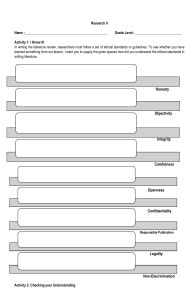
![Lesson Study Project Informed Consent for Students 2011-12 [TEMPLATE]](http://s2.studylib.net/store/data/011897429_1-e9cd20ac12fa907a0c9dbbb5866bfc98-300x300.png)
